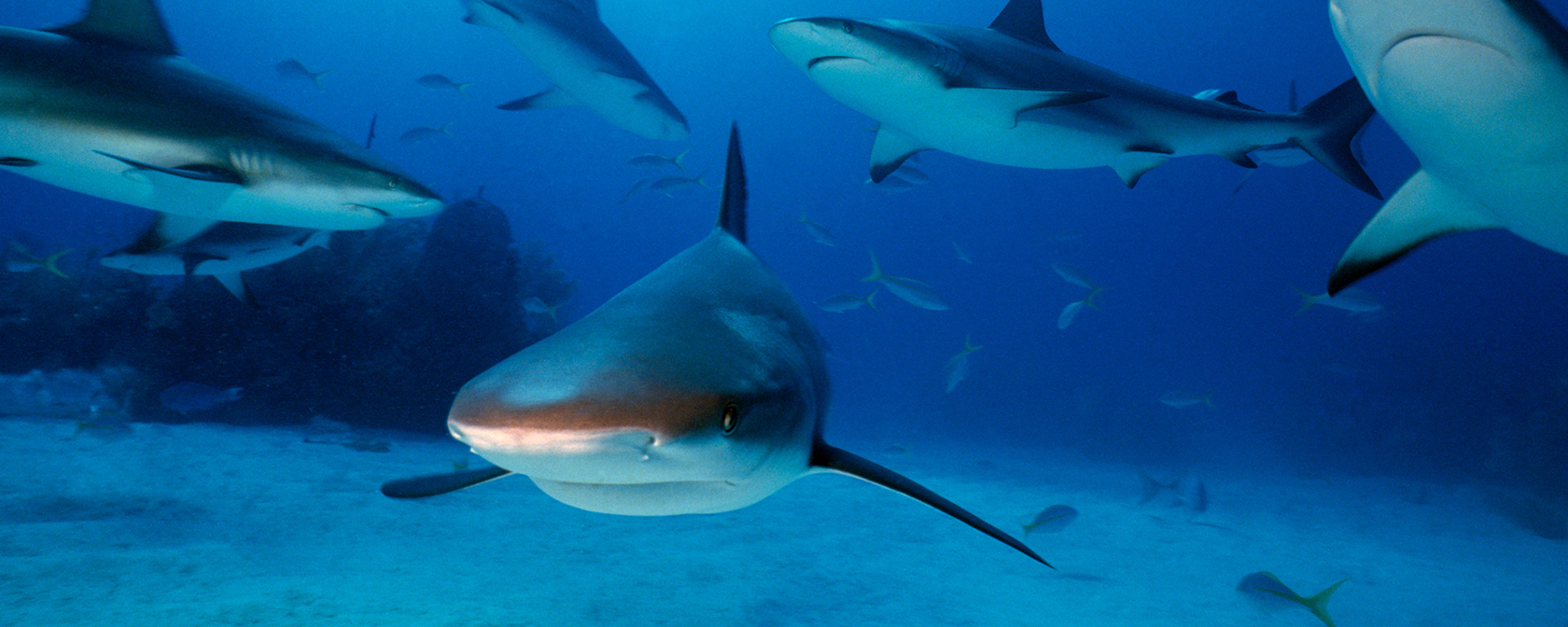Right on the heels of the Big Cat Public Safety Act’s resounding approval in the U.S. Congress, two additional animal protection measures are poised to pass as part of the National Defense Authorization Act (NDAA), which authorizes funding levels and determines authority for the Department of Defense’s most critical priorities.
Both the END Wildlife Trafficking Act and the Shark Fin Sales Elimination Act are among the supplementary measures included in the NDAA, a must-pass measure that will soon be on the fast track to President Joe Biden for his signature. Because many international criminal networks conduct poaching and wildlife trafficking (where wild animals are killed illegally to illegally sell their body parts and products) to earn money, both bills strengthen the strategic and defense interests of the nation and deserve final approval as part of the NDAA.
The END Wildlife Trafficking Act builds on 2016 legislation that has already helped to facilitate key arrests of wildlife traffickers, notably in the 2020 “Operation Apex” case detailed here. The measure encourages broad interagency efforts to employ advanced technology to combat illegal wildlife trafficking through the Internet and other channels, identify countries of concern for special focus, and ramp up federal initiatives to eliminate, neutralize and disrupt illegal trade networks.
Such criminal networks use profits from illicit wildlife trade to destabilize legitimate regimes, to corrupt democratic governance worldwide and to prop up other illegal enterprises including money laundering and the drug trade.
With respect to the global shark fin trade, the focus on consumer demand as its driver can sometimes obscure the point that fins are also the subject of an illicit global commerce in which criminal interests engaged in money laundering, drug trafficking and other illegal activities fill their coffers with profits from shark fin sales. The House and Senate versions of this bill have garnered 251 and 46 cosponsors, respectively, with solid bipartisan support and a deep understanding of the reckless, wasteful and cruel aspect of shark finning, a practice that involves cutting off sharks’ fins, often while they are still alive, and discarding their bodies in the ocean, keeping the fins for use in soup and other dishes. On top of that, this measure, which removes the U.S. from the global shark fin trade and validates the leadership of the U.S. in global shark protection, passed both chambers in the 117th Congress as part of legislative packages addressing international trade.
We’ve been pushing both these measures as priorities throughout this Congress—and fighting to end wildlife trafficking and the shark fin trade for even longer—and for good reason. Above all, they promise to spare millions of animals worldwide from persecution, suffering and death. But their passage will also set the stage for a stronger global response to criminal networks that use trafficking profits to undermine governments and civil society across the world.
Successes of this kind have many authors, but we’re greatly indebted to the members of the House Natural Resources Committee, the Senate Commerce Committee and the Senate Foreign Relations Committee, along with Rep. Michael McCaul, R-Texas, Del. Gregorio Kilili Camacho Sablan, D-Northern Mariana Islands, and Senators Cory Booker, D-N.J. and Shelley Moore Capito, R-W.Va., for making the strongest possible case for shark protection. We honored McCaul, Sablan, Booker and Capito earlier this year in recognition of their efforts to put us over the top on this measure. For their support of the END Wildlife Trafficking Act, we owe thanks to Senators Chris Coons, D-Conn., and Rob Portman, R-Ohio and to Rep. Grace Meng, D-N.Y.
In this as in other cases, the passage of laws is really the beginning of something, not the end, and there’s a lot of work to do to make this world a better and safer one for imperiled terrestrial wildlife and marine creatures like sharks, both subject to cruel and unsustainable exploitation tied to human greed and indifference. By integrating their plight, and our response, within the primary strategic defense funding vehicle of our federal government, we will be doing more than saving wildlife, however. We’ll be laying the foundations for a more peaceful and stable world order, one that’s better for people and the animals who are so dependent on our grace and mercy.
